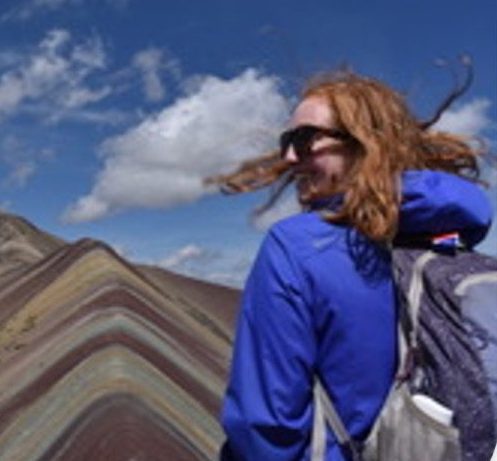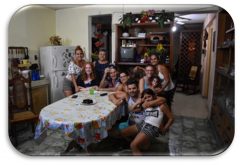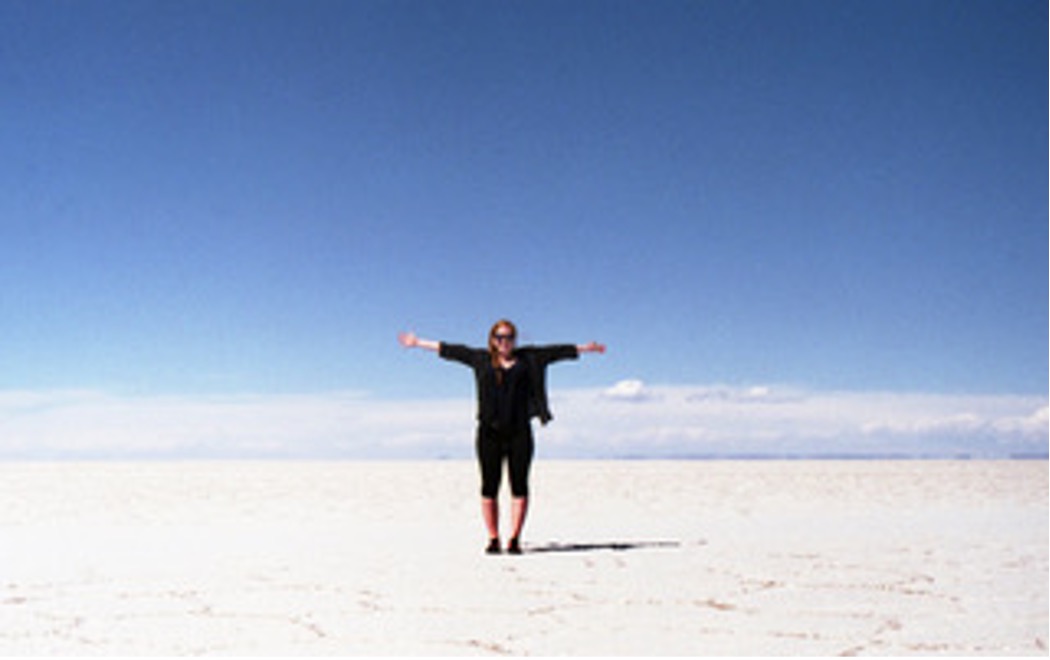LACS Student & Alumni Spotlight: Melissa Wilk (MA, 2020-2022)

M.A. (2020-2022)
- M.A. with Specialization in LACS
- Why did you decide to specialize in Latin American and Caribbean Studies?
During my undergraduate degree, I gained a passion for the region through various experiences and courses. My fourth-year capstone research project explored food insecurity and focused on Cuba as a case study for sustainable agriculture. I had a desire to incorporate my passion for the region into my MA research project and to think more critically about Latin America’s complex historical, political, and social contexts. I saw the specialization as a valuable way to collaborate and connect with different students and professors, and engage with diverse perspectives.
- Where have you travelled to in Latin America & the Caribbean? Tell us a bit of what you did while you were there. How has it shaped your perspective?

My first trip to the region was in 2014, right after I had graduated high school. I went on a solo trip to Peru, and worked with an organization called Maximo Nivel as a teaching assistant near Cusco. When I wasn’t working, I immersed myself in cultural experiences such as salsa-dancing lessons, explored Incan ruins in the Sacred Valley, and tried to find the best traditional Peruvian restaurants. As my both my first solo trip and time in South America, I was especially excited about literally everything I did, and it soon became one of my favourite places. After 4 months, my sister visited and we went to Chile and Bolivia, but Peru remained the highlight. As an 18-year-old (still figuring out the world), the trip truly changed my life and expanded my worldview; it sparked a curiosity and eagerness to learn more about Latin American history, culture, and the aspiration to become fluent in Spanish.
During my undergrad at the University of Alberta, I jumped at the opportunity to study abroad in Santiago de Cuba. I strengthened my Spanish with daily classes, and worked on research related to sustainable agriculture and climate change in the Caribbean. I built close relationships with my casa (host) family, and was very immersed in the community that I fell in love with. As I began to learn more about Cuba’s complicated history and political context, my eyes were opened to the tensions between perceptions of Cuba versus the reality. Cuba is an endlessly fascinating – sometimes frustrating – and beautiful country with a strong sense of community, generosity, and ingenuity embedded in the culture. From hearing the stories of Cuban friends to exploring the architecture to driving through the countryside, I realized could stay there for 20 years and still not understand everything.

After the study abroad program finished, I went back-packing in Peru (visited my friends), Colombia, Panama, and Costa Rica, which further solidified my interest in the region. I was later hired as the program assistant for the Cuba program, and I returned in 2019 for program planning and 2020 to help run the program. I delivered lectures, mentored students with their research projects, taught beginner Spanish, and planned field trips and hands-on learning activities. Things took a turn when we were pulled out of the country in March due to the pandemic, and it was a challenging experience to be part of the risk management and evacuation procedures. I learned so much from the experience as a whole, and I am so excited to have the privilege of returning as the co-instructor for the program in Winter 2022!
Overall, my experiences in LAC have shaped my perspective because I never could have started developing a sense of the nuances of the region or the perspectives of the people without investing time into building those relationships, asking questions, and being curious.
- If you had one piece of academic advice you could give your younger self, what would it be?
I have two things that I think are important to share: Firstly, I spent a long time comparing myself to other people and experiencing significant imposter syndrome. My advice would be – don’t do that. Everyone, including you, has unique talents, knowledge, skills, and perspectives that they bring to the table. Yours are no less valid. It’s easy to get caught up in it when everyone is always sharing their highlight reel, but I promise you will save so much time and energy if you start recognizing the value that you bring, regardless of who else is in the room. Secondly, do not underestimate the value of experiential learning. Going out and seeing the world, hearing new perspectives, and simply seeing other realities, will help you develop a strong set of skills to take with you in your future pursuits. Experiential learning is just as important as the work that goes on in the classroom or academic settings.
